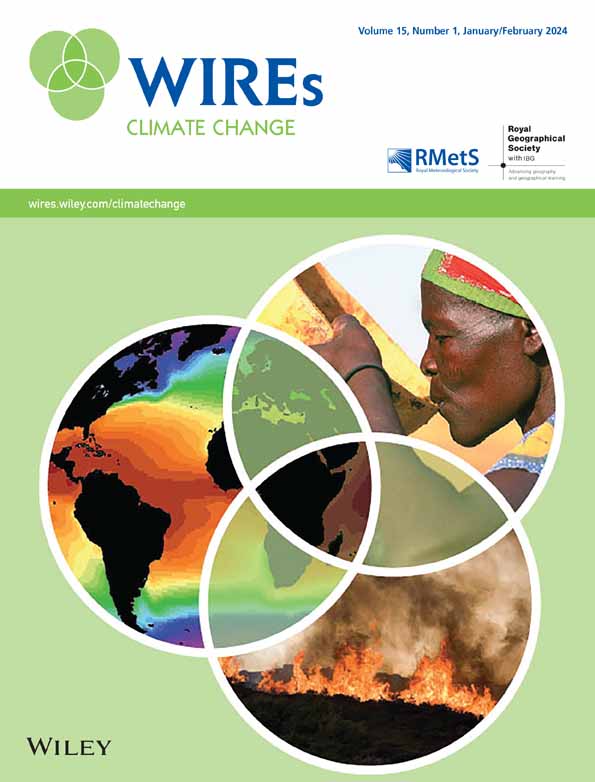Reid Bryson:危机气候学家
IF 10.3
1区 环境科学与生态学
Q1 ENVIRONMENTAL STUDIES
引用次数: 0
摘要
里德-艾伦-布莱森(1920–2008)是一位强有力的演说家,他一直在与体制压力作斗争,以向公众传达他的信息。在20世纪60年代,布莱森是更广泛的学术转向带有政治色彩的跨学科主义的领导者。令他的许多同事沮丧的是,他在20世纪70年代公开发表了气候预测,成为媒体界的重要人物。他并没有被全球变暖的论点所左右,即使这个框架在20世纪80年代末成为气候变化的公认面孔。通过研究布莱森煽动的争议和他所反对的潮流,我们可以看到更广泛的社区正在结晶和推动以前可能没有阐明的立场。此外,布莱森对气候话语兴起的个人贡献在历史文学中也没有得到充分的挖掘。Bryson在1973年世界粮食危机期间发挥了重要作用,使美国和加拿大的政治机构都对气候问题给予了更多关注。Bryson将气候变化与20世纪70年代的粮食供应和一系列气候异常联系起来的叙述在1979年的第一次世界气候大会上仍然占据主导地位。布莱森还帮助打破了气候学家直接对媒体发表讲话的限制,导致了20世纪70年代前所未有的气候讨论,并为气候变化成为21世纪决定性问题之一提供了跳板。本文章由计算机程序翻译,如有差异,请以英文原文为准。
Reid Bryson: The crisis climatologist
Reid Allen Bryson (1920–2008) was a forceful orator who consistently fought against institutional pressures to get his messages out to the public. In the 1960s, Bryson was a leader in the wider academic turn toward politically charged interdisciplinarianism. To the dismay of many of his colleagues, he publicly made climatological prognoses in the 1970s, becoming a significant figure in the media landscape. He was not swayed by the arguments for global warming, even as the framing became the recognized face of climate change in the late 1980s. By examining the controversies that Bryson instigated and the currents that he swam against, we can see the wider community crystallizing and promoting positions that may have previously gone unstated. In addition, Bryson's personal contribution to the rise of climate discourse has been underexplored in the historical literature. Bryson was instrumental in bringing climate onto the political radar during the World Food Crisis of 1973, shocking both the US and Canadian political establishments into paying more attention to the issue. Bryson's narrative linking climate change to both food supply and a series of climate anomalies in the 1970s remained predominant in the first World Climate Conference of 1979. Bryson also helped break a seal on climatologists speaking directly to the media, leading to unprecedented climate discourse in the 1970s and giving climate change a springboard to become one of the defining issues of the 21st century.
求助全文
通过发布文献求助,成功后即可免费获取论文全文。
去求助
来源期刊

Wiley Interdisciplinary Reviews: Climate Change
METEOROLOGY & ATMOSPHERIC SCIENCES-
CiteScore
20.00
自引率
2.20%
发文量
58
审稿时长
>12 weeks
期刊介绍:
WIREs Climate Change serves as a distinctive platform for delving into current and emerging knowledge across various disciplines contributing to the understanding of climate change. This includes environmental history, humanities, physical and life sciences, social sciences, engineering, and economics. Developed in association with the Royal Meteorological Society and the Royal Geographical Society (with IBG) in the UK, this publication acts as an encyclopedic reference for climate change scholarship and research, offering a forum to explore diverse perspectives on how climate change is comprehended, analyzed, and contested globally.
 求助内容:
求助内容: 应助结果提醒方式:
应助结果提醒方式:


